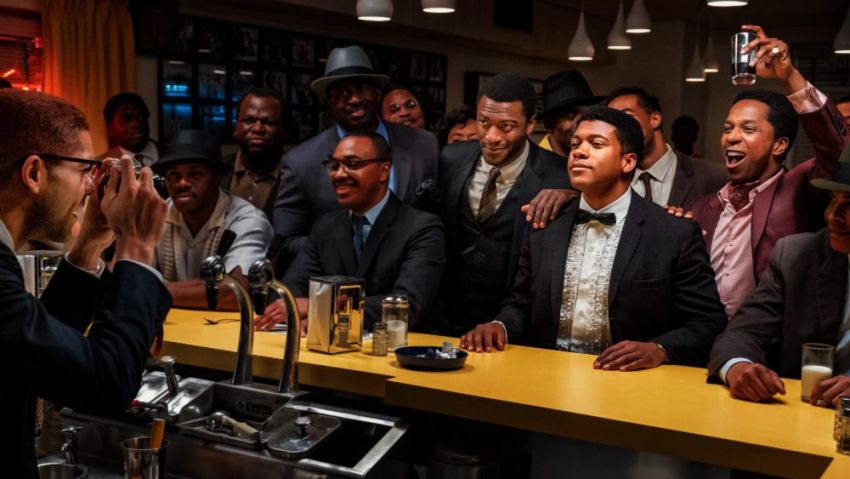
One Night in Miami
Directed by Regina King
Starring Kingsley Ben-Adir, Eli Goree, Aldis Hodge, Leslie Odom Jr.
Streaming on Amazon Prime
Cassius Clay (not yet Muhammad Ali) beat Sonny Liston to become heavyweight boxing champion of the world on February 25, 1964, in Miami, Florida. That night, he met up with Malcolm X, soul singer Sam Cooke and star footballer Jim Brown.
Nobody knows what they spoke about, but One Night in Miami is a fictionalised depiction of them discussing the burning issues of Black liberation.
Elements of the script are drawn from other known facts, such as an account mentioned in Brown’s autobiography in which a white neighbour would not allow him to enter the house because of his skin colour. Also factual is the stress that Malcolm X was under as he contemplated leaving the Nation of Islam to build a broad Black liberation movement.
The screenplay is adapted from a successful stage production and the film shows it. Director Regina King makes every effort to show events outside the claustrophobic hotel room in which the meeting takes place, but this is not an action-packed adventure, it is a dialogue-driven film of ideas.
The script weaves in all the debates in the early-1960s civil rights movement and cultural developments, as soul music started pushing into the mainstream and Black sports stars broke through Jim Crow. Themes of Black capitalism (which is still pushed by the Nation of Islam today), cultural independence and the crucial issue of leadership all get an airing.
Each of the characters is stellar in their field. Australian audiences know of Ali, but may not appreciate the tremendous stature of Brown in US football. Years after he left football I met arch-racists in Georgia who spoke in awe of him and could describe in detail each of his games.
In One Night in Miami Malcolm X wants them to step up to the political stage, which each is reluctant to do for different reasons. He drives the debates, which at times confuses and upsets the other characters.
The fact that Malcolm is aware of the danger of his martyrdom is clear to the audience but not yet to the others. He is trying to cement a new Black leadership while he still can.
Each of the lead actors is good, but Leslie Odom jnr, who won a Tony for his performance in Hamilton and a Golden Globe for this role is faultless as Cooke. He not only perfectly copies Cooke’s mannerisms, he sings his songs impeccably. Seeing Cooke come to life is one of the delights of this film.
Cooke was murdered three months before Malcolm X. They each were inspirational figures and their representation here alongside Brown and Ali reflects an important cultural moment.
Hollywood is running hard to show “diversity” in response to the Black Lives Matter movement. It is the power of that movement that has summoned the spirit of Malcolm X, the voice of Cooke, the brilliance of Ali and the genius of Brown to our screens to speak to a new generation.